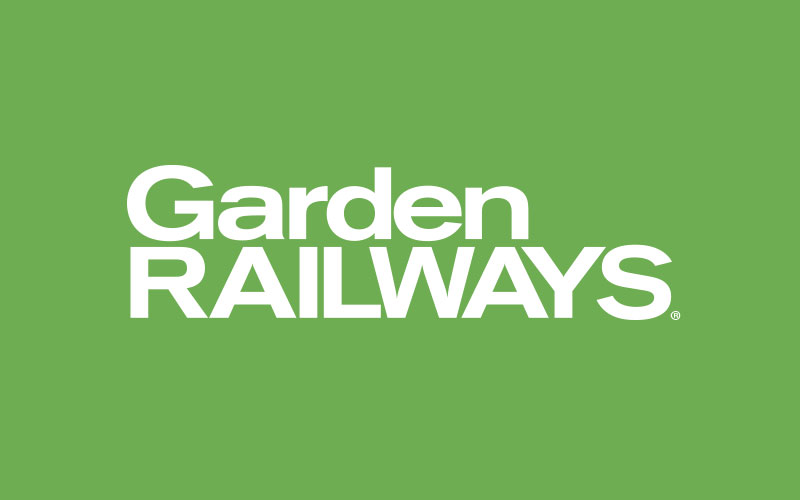
Have questions about getting started in garden railroading? Start here. What are large scale trains? “Large scale” is a term that denotes trains that are larger than 0 scale (1:48) but smaller than the trains that are large enough to ride on. Large-scale trains generally run on gauge 0, gauge 1, or gauge 3 track. […]
Read More…
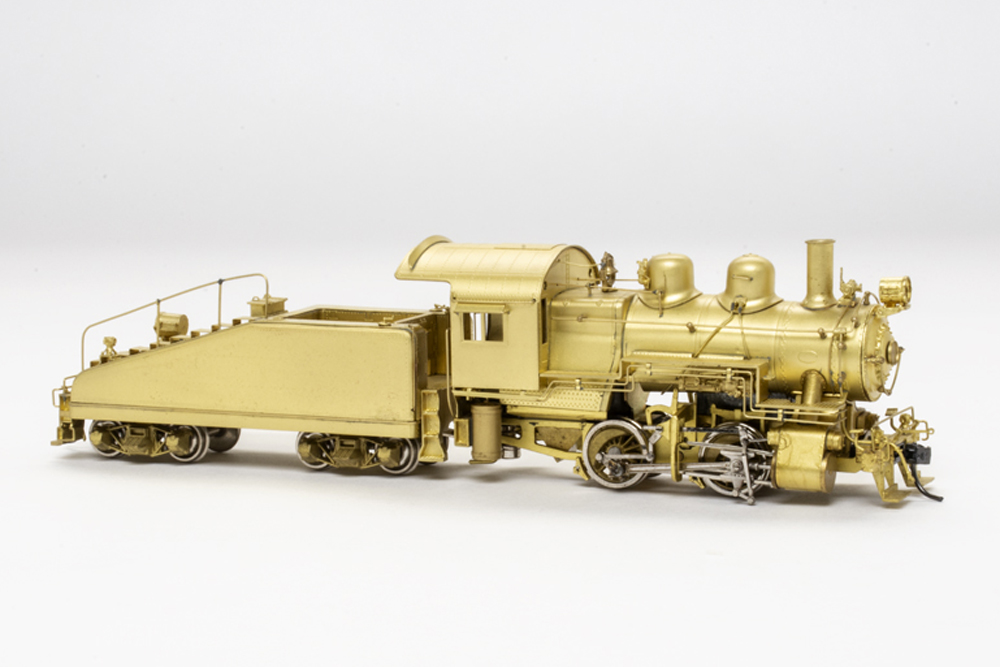
Brass engine disassembly basics: When I was a kid, I’d go to the local hobby shop and drool over the brass steam locomotives in the glass display case near the cash register. I’d seen most of them in the Pacific Fast Mail advertisements that used to grace the back cover of Model Railroader, and here […]
Read More…
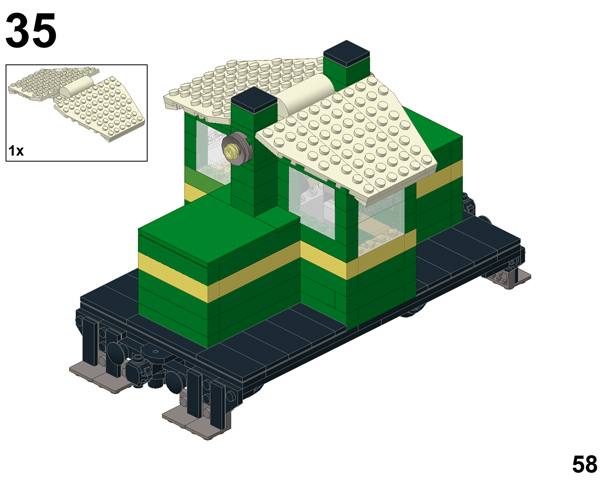
Lego Trains for Large Scale Rails In the Summer 2019 issue, Gary Raymond shares how he modified Lego trains to run on gauge-1 track. Here, Ben Lake has shown the steps to build a Mack diesel using Lego parts. Download the PDF below and share what you build with us! […]
Read More…
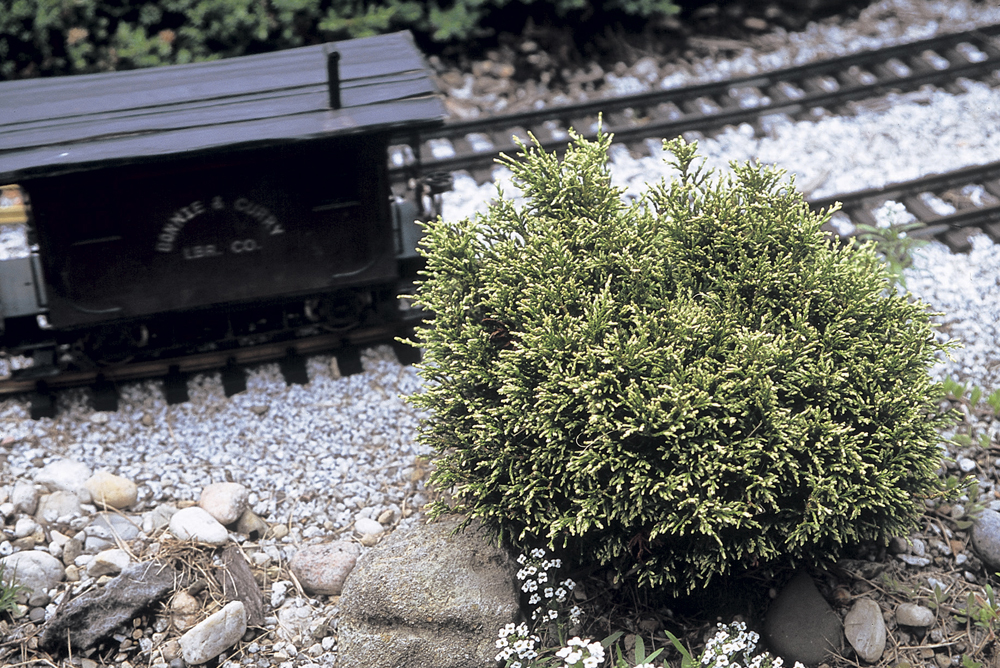
White Pygmy cypress Latin name: Chamaecyparis pisifera ‘White Pygmy’ Common name: White Pygmy cypress Plant type: Dwarf conifer Growth rate: 12″ x 14″ wide USDA Hardiness Zones: 5-8 Cultural needs: Sun to part shade, rich soil, moderate water White Pygmy is one of the smallest dwarf conifers available, usually growing only to a foot tall […]
Read More…
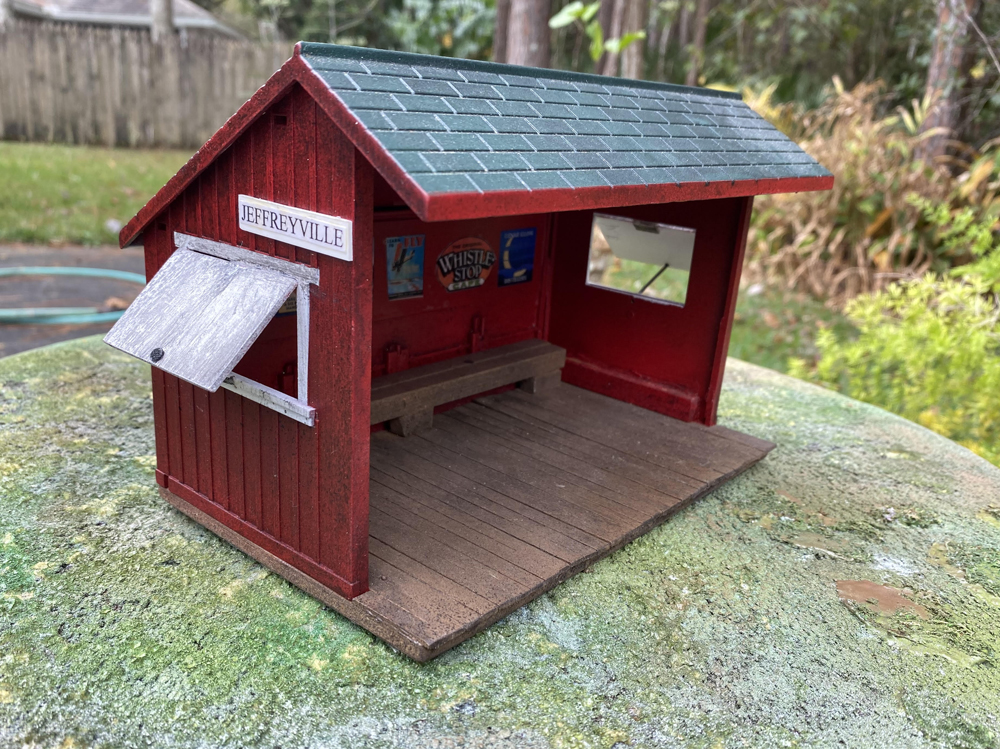
Kitbash an inexpensive flag stop station: I stopped by a garage sale last year that had children’s toys piled up on a table. I found several items I thought I could use, including what looked to be a horse stable building. The seller was asking 50 cents for it and the other items I picked […]
Read More…
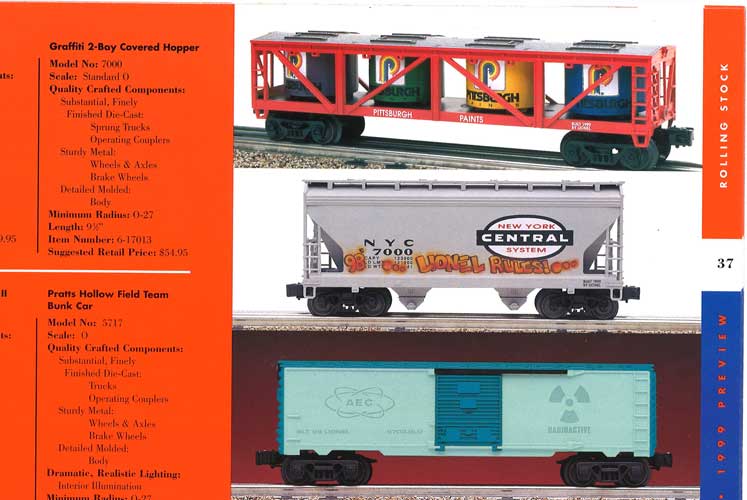
Graffiti on O gauge trains typically has a polarizing effect: One either loves or hates it. But there’s no denying the painting on model subways, rolling stock, and even diesel locomotives can make contemporary equipment come to life. Items produced and marketed by Lionel, along with some developed by Atlas O and MTH Electric Trains, […]
Read More…
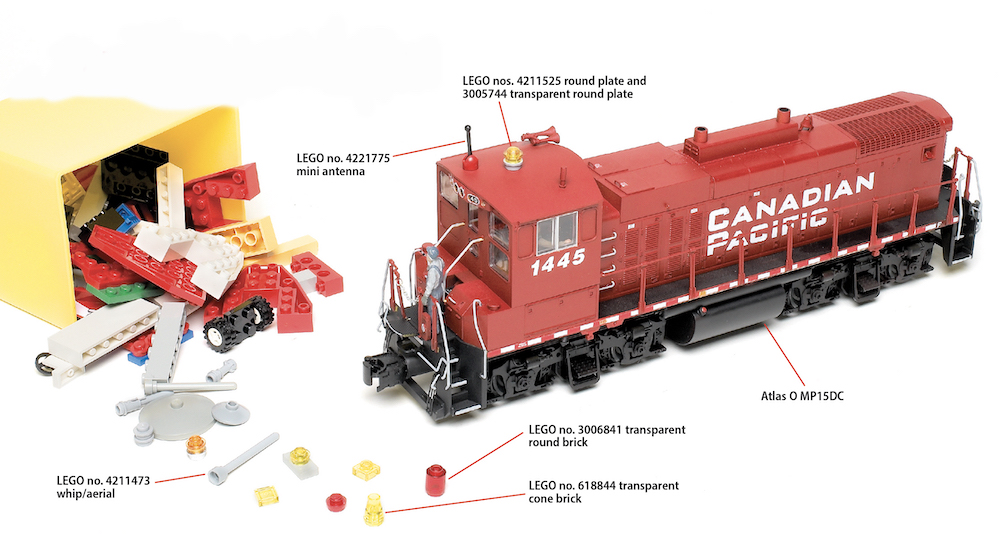
From CTT’s editorial page to Collectible Classics, I’ve spouted on about how the world’s greatest hobby, model railroading, has and will continue to influence my life and leisure. Unfortunately, that influence hasn’t (yet) extended to my young son, Theo. Instead of toy trains, he’s currently consumed by all things LEGO – those interlocking plastic building […]
Read More…
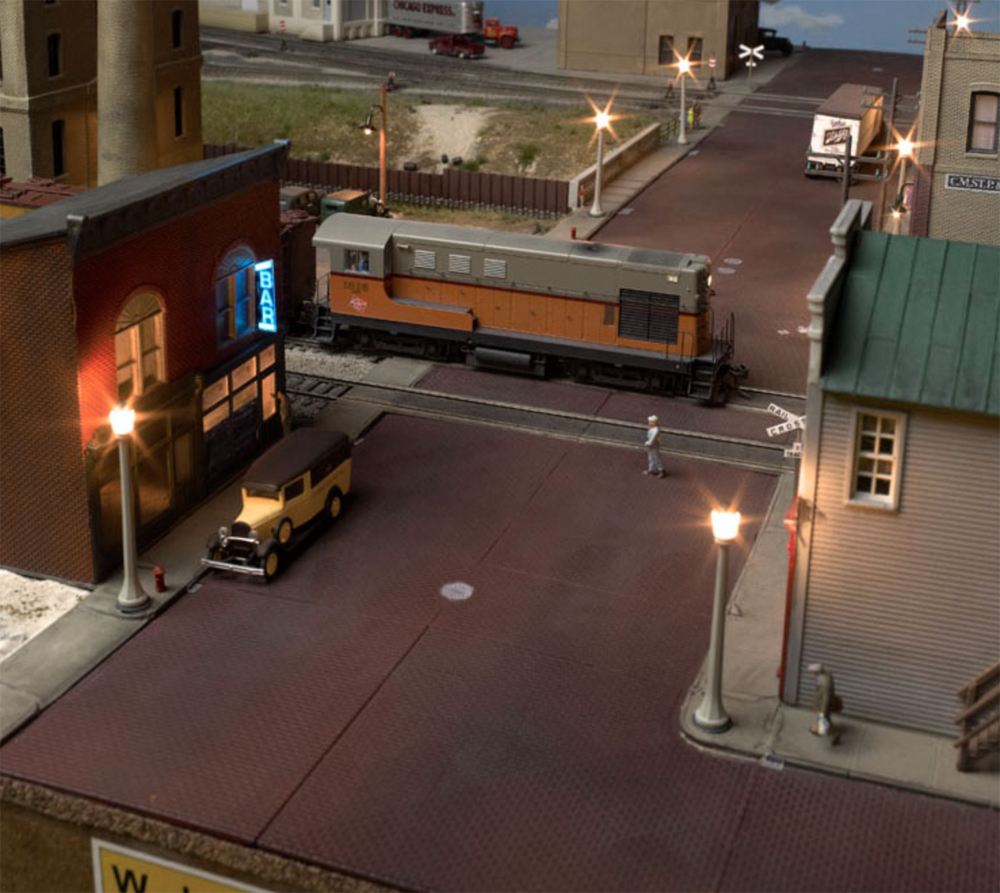
Trains.com Director David Popp shares 11 easy urban lighting tips to help model railroaders learn to light their layouts for nighttime operations. As if model railroads aren’t cool enough by themselves, adding miniature lights to the streets, buildings, and automobiles on your layout can make it so cool it glows – literally! Recently, I […]
Read More…
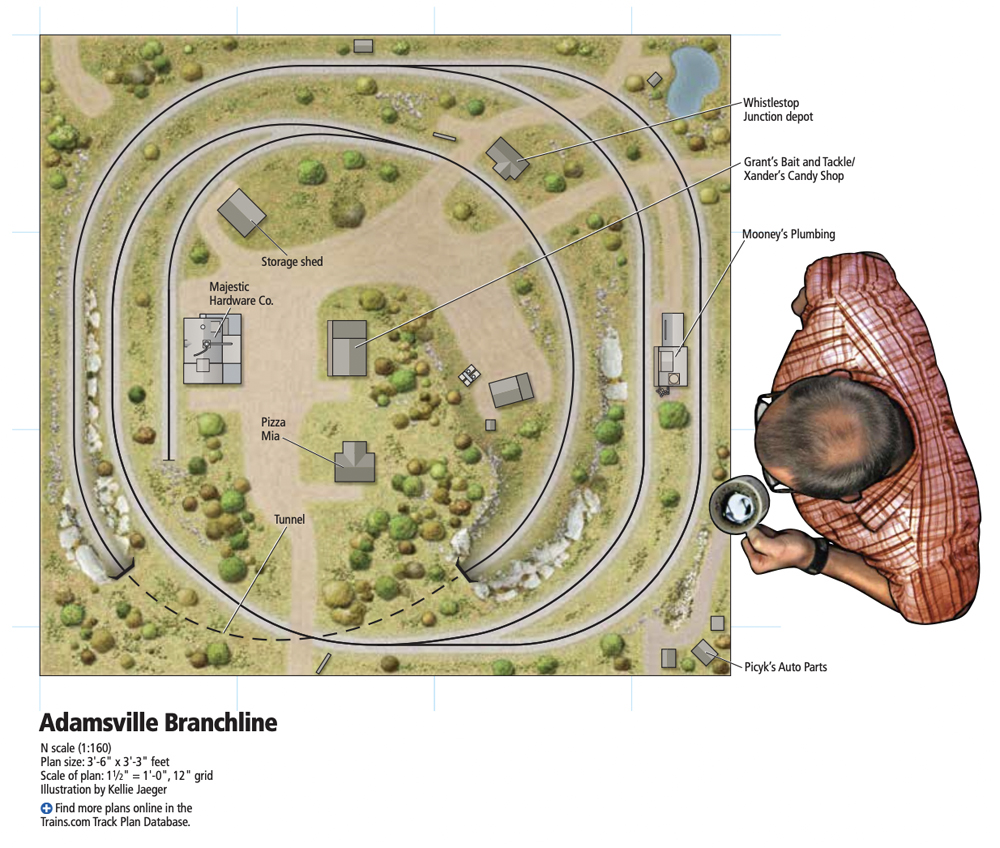
Facts & features Name: Adamsville Branchline Scale: N (1:160) Size: 3′-3″ x 3′-6″ Prototypes: Freelanced Locale: New England Era: Steam-to-diesel transition era Style: Island Mainline run: 13 feet Minimum radius: 9.5″ Minimum turnout: No. 4 Maximum grade: 2% Benchwork: 1 x 2 open grid Height: 8″ Roadbed: Cork Track: Atlas code 80 flextrack Scenery: Cardboard […]
Read More…
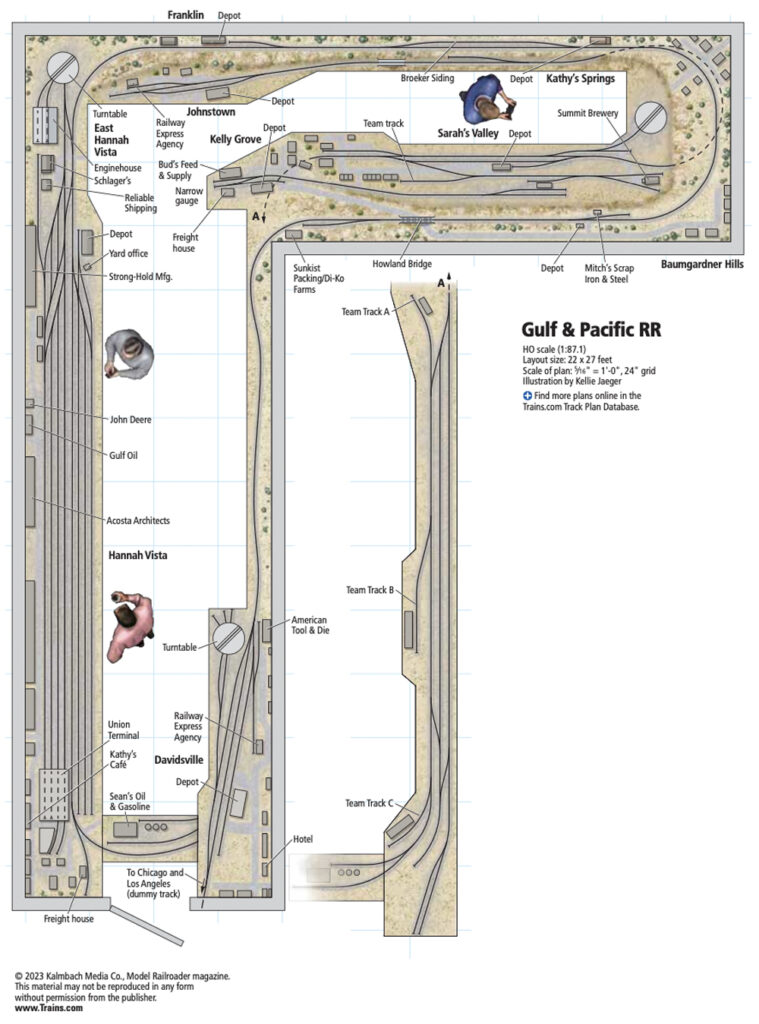
Facts & features Name: Gulf & Pacific RR Scale: HO (1:87) and HOn3 (HO scale, 3-foot narrow gauge) Size: 20 x 24 feet Prototypes: Freelanced Locale: Generic Era: Early 1960s Style: Shelf Mainline run: 180 feet Minimum radius: 30″ (main), 24″ (branch and spurs) Minimum turnout: No. 6 (main), No. 4 (branch and spurs) Maximum […]
Read More…
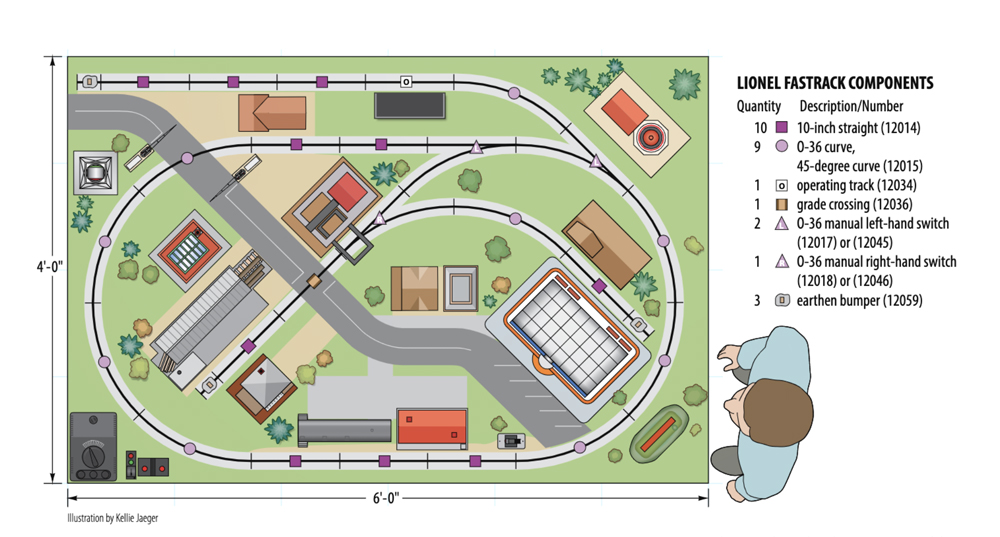
Download the track plan for this layout. […]
Read More…
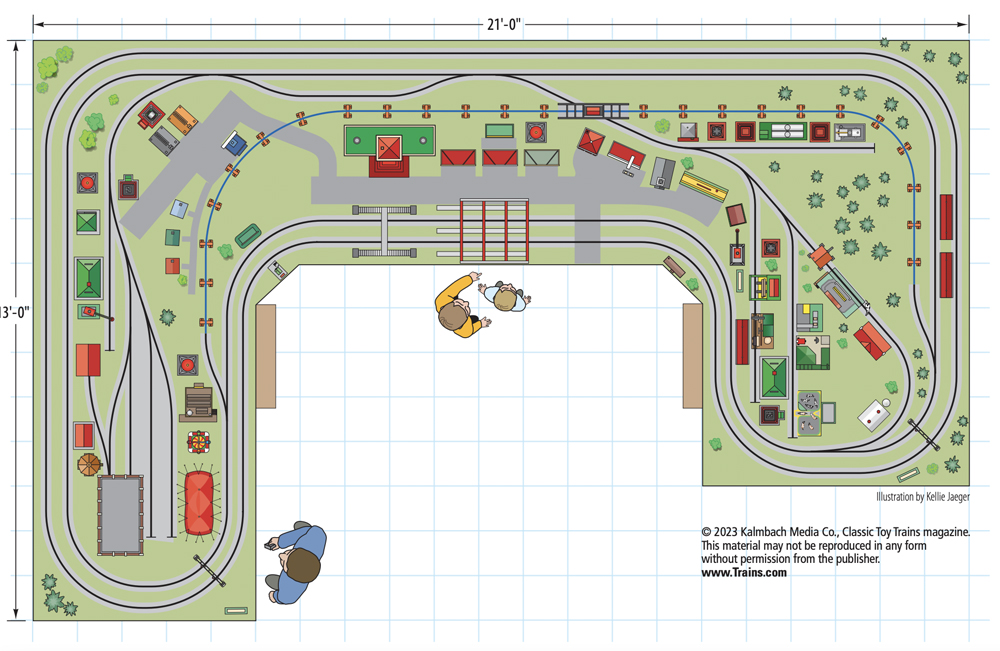
Name: Dave Tori’s S gauge layout Dimensions: 13 x 21 feet Track: Gilbert and Lionel American Flyer (diameters range from 36 to 54 inches) Switches: Gilbert American Flyer Motive power: American Models, Gilbert and Lionel American Flyer, Pennsylvania Heritage Models, S-Helper Service Rolling stock: American Models, Gilbert and Lionel American Flyer, S-Helper Service Controls: American […]
Read More…












